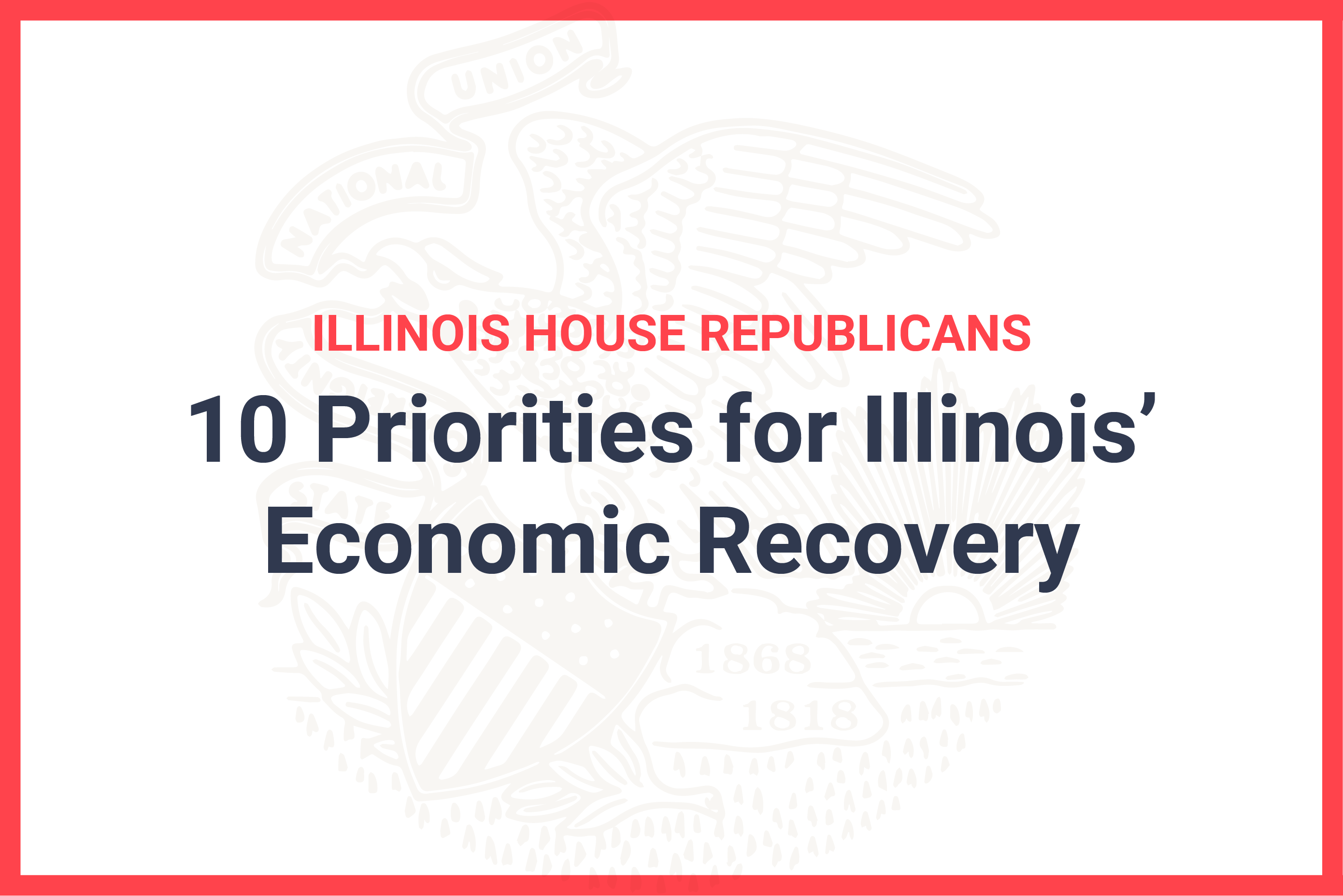As the COVID-19 Pandemic unfolded and the March Stay at Home was put into place, House Republican Leader Jim Durkin took the long view creating an internal Economic Recovery Working Group.
The Working Group, chaired by Deputy Republican Leader Dan Brady, held a series of virtual meetings to address the inevitable economic devastation that was sure to follow the state shut down. The loss of small businesses and the jobs they provide would have a long term impact on all of our communities. Through the course of their meetings and with the input of leaders from around the state, the Working Group outlined the following priorities that will aid in the economic recovery of the Illinois.
- Repeal Progressive Tax Constitutional Amendment – The world has changed so much in just a matter of weeks; we too must change how we look at state government. The General Assembly needs to remove the Progressive Tax Amendment from the ballot, repeal the accompanying high tax rates, and commit to no new taxes. Businesses and residents need certainty in these chaotic times.
- Reexamine the Minimum Wage Mandate – The General Assembly failed to recognize regionalization and other factors as it rushed to pass a minimum wage bill last year. An additional government mandate creating higher costs for our employers when they are in such a perilous position needs to be re-evaluated immediately.
- Enhanced Access to Government Services – Residents of our state should not be burdened with the red tape of Illinois government during these stressful times. Professional, firearm, driver and educational licenses should all be automatically extended and an easy process should be created for first time applicants and for renewals of expired licenses. This will help get people back into the Illinois workforce. Additionally, fees ranging from starting a small business to trailer licensing should be reduced.
- Property Tax Payment Fairness – Many homeowners have lost sources of income during this time, so we must remove late fee penalties from property taxes and stop all tax sales in an effort to help them stay on their feet and in their homes.
- Property Tax Relief – For decades, Illinois has struggled with high property taxes and the General Assembly has failed to deliver any meaningful relief. To help our struggling homeowners, farmers, businesses and local governments, we must look to cut property tax bills in meaningful ways, including by reducing state mandates.
- Protect Unemployment Insurance Benefits – Closures of non-essential businesses and stay at home orders have resulted in mass layoffs in many sectors of our economy. Employers should not be punished with higher insurance costs due to mandated closures. Unemployed workers experiencing delays in benefits processing deserve better customer service from IDES.
- Enhance Business Liquidity – As the pandemic continues, sales and payroll tax collections should be deferred. All businesses across the state should be covered by the deferral to make sure they have the necessary cash flow available to them. The state should also institute a tax credit to incentivize hiring of Illinois residents and college graduates.
- Creation of Business Loan Program – Dedicated state resources like cannabis and liquor taxes should be temporarily redirected to create a statewide microloan program for small businesses to give them access to much needed capital.
- Standardizing Essential Businesses and Working towards Reopening – It is confusing for many businesses to figure out what is “essential.” A shoe store may not be deemed essential, yet a big box store can sell shoes. We must quickly work to redefine what is essential and create a practical regional approach to begin reopening our storefronts when it is deemed safe to do so.
- Automatic Sunset Extensions – At a time when there is great uncertainty about the General Assembly’s session calendar, we owe it to residents across the state to automatically extend all sunsets that expire in the next 3 years. This is especially important for our healthcare workers as they have many more pressing issues to address outside of lobbying the General Assembly.
